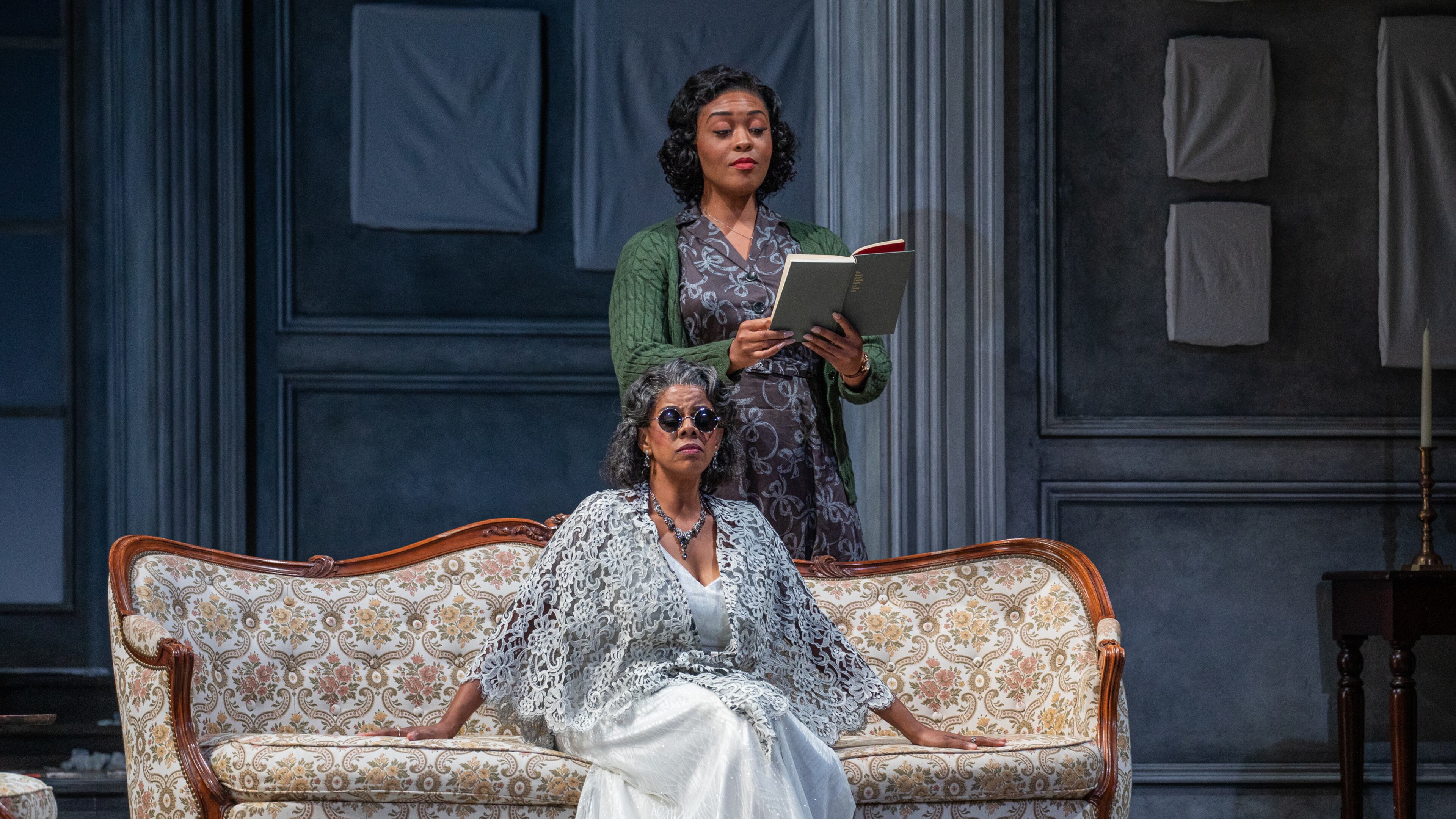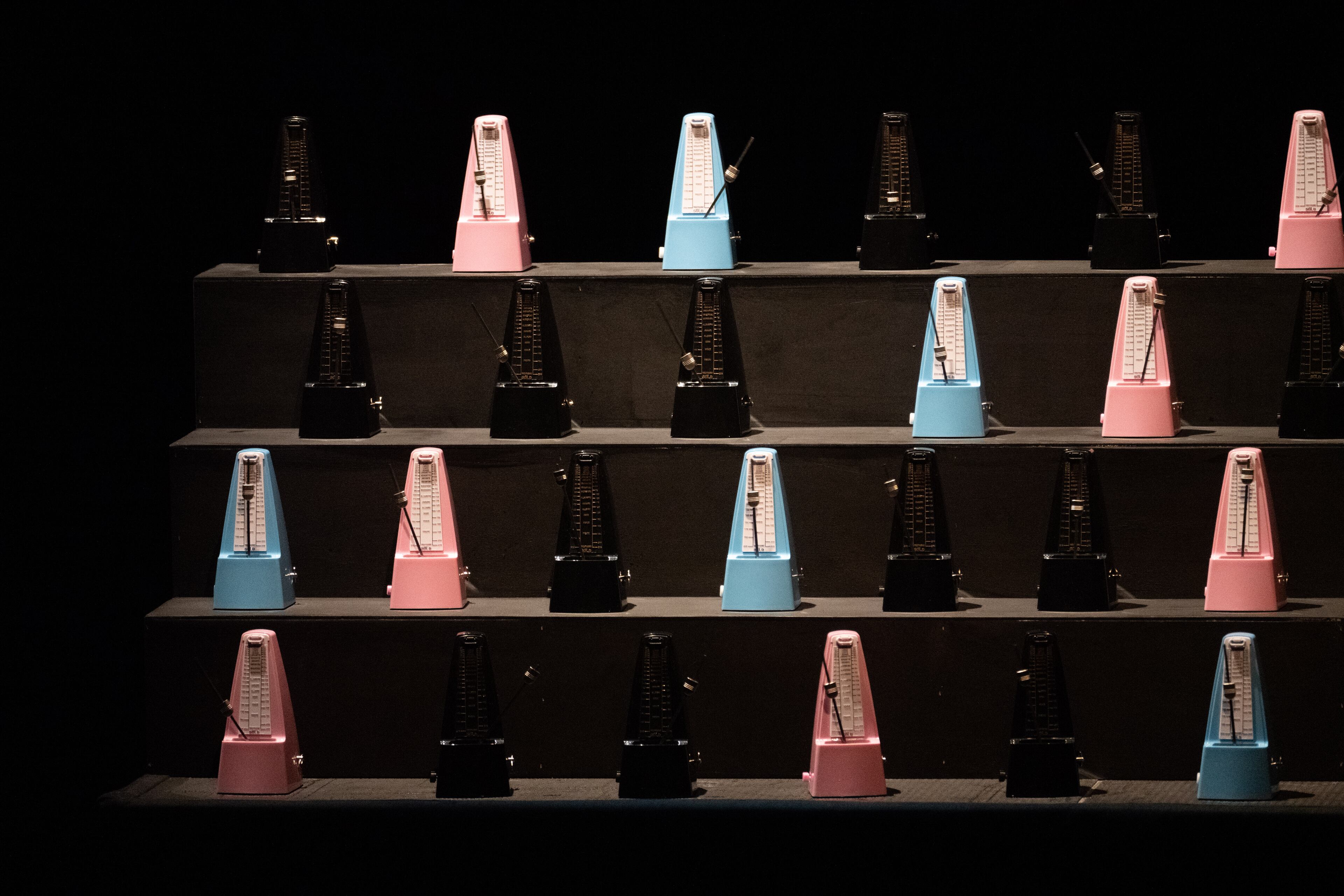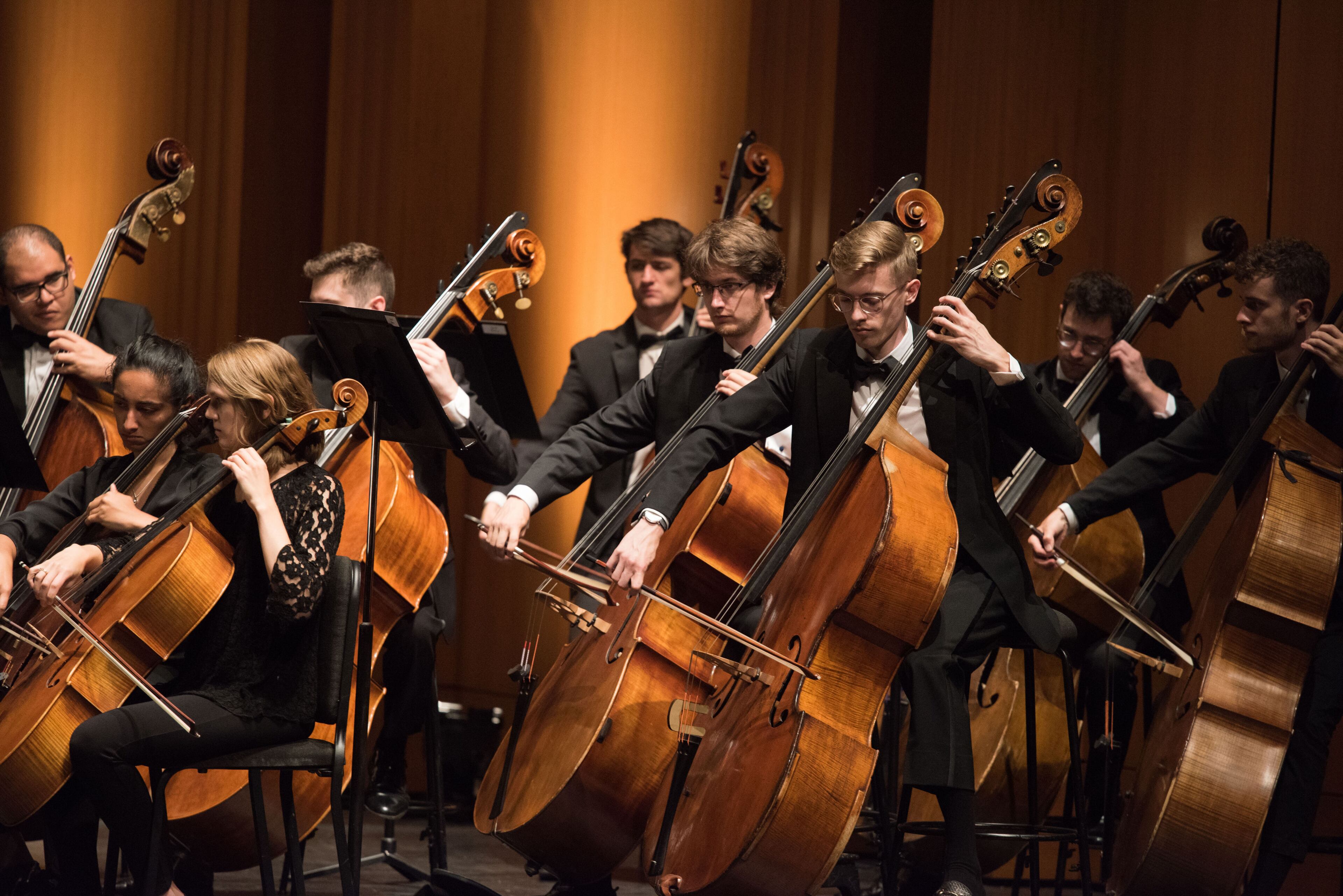Charleston’s Spoleto Festival experiments with classical works

This story was originally published by ArtsATL.
Much is still on tap at Spoleto Festival USA, the South’s annual showcase of artistic innovation that runs through June 11 in Charleston, S.C.
One theme this year is Africa, as seen in a new play, “The Book of Life,” by Rwandan playwright Gakire Katise Odile, and in South African choreographer Dada Masilo’s “The Sacrifice,” which explores Tswana dance forms and vocabularies, fusing them with classical ballet and modern dance.
As always, this year’s festival features a robust jazz schedule and some musical programming that doesn’t fit into neat categories, now grouped together as the “Front Row” series.
Classical music follows a pattern here: a formidable array of chamber music concerts, a couple of concerts featuring the festival orchestra, another couple featuring the festival chorus and the “Music in Time” series, focused on experimental music.
Opera has always been center stage at this festival famously founded by Gian Carlo Menotti, an opera composer. Especially because of its innovative productions and its focus on newer works and obscure older works, Spoleto has become an important destination in the opera world, with an influence much larger than its budget or short season would suggest.
Like classical music, opera has also followed a pattern here. For decades, there were almost always three operas: a large mainstage production, a Baroque or chamber opera and a third opera, often a new work.
Spoleto broke that pattern in 2019, with only a single opera, “Salome.” Then came the lost 2020 season and a severely truncated 2021 season, both due to the pandemic. When the festival returned to the three-opera format last year (including the world premiere of “Omar,” which went on to win the 2023 Pulitzer Prize in Music), opera fans had reason to rejoice.
This year, however, there is again only one opera, “Vanessa.” A festival spokesman said that this shouldn’t be taken as a sign of retreat, that the festival is committed to performing opera, and that the number of operas each season will be determined less by a template, but more by several factors including budget, availability of artists and venues and what else is happening. Still, it’s concerning to me.
‘Vanessa’
Though there is only one opera, it’s a doozy. Samuel Barber’s “Vanessa,” with a libretto by Menotti, who was also his partner in life, had its premiere in 1958 at the Metropolitan Opera and earned Barber the 1958 Pulitzer Prize in Music. In 1978, it was performed here at Spoleto, with Menotti directing. It was that production, filmed and televised nationally, that put Spoleto on the map. This time, the Spoleto turned to Rodula Gaitanou’s production, which originated at the Wexford Festival in 2016.
The opera takes place in an isolated rural mansion where a dysfunctional family of three women deal with men and with one another, in an overheated manner reminiscent of a Tennessee Williams play. Vanessa, a baroness, was seduced and abandoned 20 years earlier by Anatol. Ever since, she has waited, deluded, for his return.
A guest turns out to be the son of Anatol, who has the same name. On his first night, he seduces Erika, Vanessa’s niece, but she is soon repelled by his deceitful nature, holding out for something more genuine. Anatol turns his attention to Vanessa, who latches on to him in desperation, substituting him for his father.
Erika, meanwhile, has become pregnant, but she rejects Anatol’s offer to marry her, ultimately aborting her pregnancy and attempting suicide in the winter night. Vanessa arranges to marry Anatol and flee to Paris where he plans to spend her fortune on a grand lifestyle. After their departure, Erika covers the mirrors and begins to wait for love to find her.
In the opera, Vanessa and Erika are seen through the lens of Vanessa’s mother (and grandmother to Erika), the Old Baroness, and a family friend, Old Doctor.
Gaitanou’s elegant production updates the setting to the 1950s and places it in upstate New York, a decision which helps to underline the timelessness of the opera’s themes, though it clashes with the class structure the opera depicts. As the audience arrives, a psychiatrist’s couch sits in front of the curtain, where it will remain for much of the opera, suggesting the introspective analysis the opera offers for each of the major characters. The Old Baroness spends her time painting, and we eventually realize that all of her paintings are portraits of Vanessa and Erika, though Vanessa has ordered them, and the mirrors, covered, an attempt to stop time and reflection.
Soprano Nicole Heaston was a competent Vanessa, vocally solid but dramatically a bit understated in a role that has been likened to that of Blanche Dubois. Mezzo-soprano Zoie Reams brought an expressive sound and solid acting to the role of Erika. As the caddish Anatol, tenor Edward Graves was less persuasive dramatically, but his voice showed promise. Malcolm MacKenzie was an excellent Old Doctor, mastering both the comic and more serious sides of his character.
The vocal star of the evening, however, was septuagenarian Rosalind Plowright, whose commanding presence as the Old Baroness dominated the stage, combining moral rectitude and practicality in her shrewd advice and punishing judgment.
The other revelation was the sensitive conducting of Timothy Myers, who brought out the subtle aspects of Barber’s score, with just the right attention to the emotionally powerful plot.
“Vanessa,” once a huge success, has retained its potency and deserves to be onstage more frequently. This performance succeeded as an ensemble work, honoring Spoleto’s own legacy and showcasing Barber’s unique blend of lyricism and modernism. If you’ve not heard “Vanessa,” RCA’s 1958 recording with the immortal Eleanor Steber in the title role and Dimitri Mitropoulos conducting is a good place to start.
‘A Poet’s Love’
Tenor Jamez McCorkle, who had the title role in “Omar,” last year’s acclaimed opera premiere at Spoleto, has returned this season with a solo project. McCorkle has teamed up with visual designer Miwa Matreyek and dancer Jah’mar Coakley to present their adaptation of Robert Schumann’s best-known song cycle, Dichterliebe. McCorkle, who accompanied himself on piano, is a thoroughly flexible singer. Here, he adapted his burnished sound nicely for each section.
In the cycle, based on poetry by Heinrich Hein, the poet searches for love, finds it, then loses it, then mourns his loss, unable to let go.
As McCorkle sang in German, images created by Matreyek were projected on a screen alongside him: moving drawings, initially black and white, with color building later. The images — horses, snakes, a garden, a pair of hands — are sometimes threatening, but more often protective. Coakley, whose image is projected on the screen, is a dancer, interacting with the images.
The experience was mesmerizing, but an understanding of the words is critical to this work. A translation, either in the program or projected, of the text would have been helpful.
Ian Bostridge’s performance of Dichterliebe, available on YouTube, is perhaps the ultimate version of this classic.
‘Music In Time’
One of the most intriguing series in the Spoleto lineup each year is “Music In Time,” a project created, hosted and conducted by John Kennedy — the festival’s resident conductor — to focus on modern and experimental music. This year’s lineup includes two programs, the first of which was “Timekeepers.” In his introduction on opening weekend, Kennedy pointed out that the day marked György Ligeti’s 100th birthday, so it was the perfect time to present his “Poèm Symphonique,” a strikingly original composition from 1962 that features 100 mechanical metronomes.

The metronomes, arrayed on a platform, are set to different speeds and started, by technicians, at the same time. As they slowly wind down, the sound forms patterns, and as some begin to stop, it becomes possible to hear the individual instruments. As Kennedy observed, this kind of composition is about “finding new ways of listening.” Focusing on the sound textures turned out to be a rewarding experience.
One other piece was on this program: Australian composer Liza Lim’s “Extinction Events and Dawn Chorus,” written in 2018. Lim uses her work primarily to address ecological issues, and this one is especially focused on debris. Her sound has been described as “post-new-complexity” music, and much of it falls into the category of percussion, without distinct notes. Wild animal sounds, especially from birds, are a recurring feature.
This work uses a full orchestra, with many of the musicians doubling on unusual instruments, such as the waldteufel, or a drum with a string running through the membrane, and percussive rattles. But most of the sounds are produced using traditional instruments in innovative ways, like microtonal scales on the bassoon, or descending semitones on the brass. Lim is inventive, with a huge vocabulary, and the 40 or so minutes passed quickly.

Chamber Music
Since its origin in 1977, the chamber series at Spoleto has relied on a “host” to serve as emcee, and for the past decade, this was the role of Geoff Nuttall, who died in October. This season’s chamber festival is dedicated to Nuttall. No successor has been chosen. Instead, a rotating cast of Nuttall’s longtime friends and collaborators, including his widow, violinist Livia Sohn, introduced the works on the programs.
Program I
The first program opened with Bach’s A-minor Flute Concert, a fiery work bursting with energetic dialogue. Even Sohn, who introduced it, acknowledged that it was “really hard” when played at this pace. It is especially demanding of the first violin, performed by Owen Dalby, and the flute, Tara Helen O’Connor. They were joined by Sohn on violin, Lesley Robinson on viola, Christopher Costanza on cello, Anthony Manza on double bass and Pedja Mužijević on harpsichord.
Then came Mozart’s Piano Quartet in E-flat Major, with Mužijević as pianist, joined by the three remaining members of the St. Lawrence Quartet: Dalby, Robinson and Constanza. Apparently the first work ever written for this combination of forces, this piece is nicely balanced between piano and strings, with motifs developed and passed around. The performance was exemplary.
For the finale, we got a splendid rendering of Osvaldo Goljov’s “Tenebrae,” with Sohn and Dalby joined by violist Ayane Kozasa and cellist Paul Wiancko. Golijov, who introduced the work, was a favorite composer of Nuttall’s, and this piece was developed from melismas found in Coperin’s “Troisieme Leçon de Tenebrae.”
The work plays around with the letters of the Hebrew alphabet, and Golijov suggests that it “juxtaposes the brutality of war with the innocence and hope of youth.” It’s a hauntingly beautiful work.
Program II
The second chamber program began with a wildly virtuosic jazzy piano showpiece written and performed by Stephen Prutsman, inspired, we were told, by a stray dog in Mexico City.
We then heard Benjamin Britten’s “Phantasy Quartet,” written for oboe and string trio. In this performance, a soprano saxophone, nimbly played by Steven Banks, substituted for the oboe, joined by Sohn, Kozasa and Costanza. Written when Britten was 18 and immediately performed by no less than Léon Goosens on a BBC broadcast, the work is quintessentially English and reveals little of the signature Britten sound world that would soon follow. Much of it is built around a march. The bright sound of the saxophone gave it a special exuberance.
Up next was a short work for string quartet, “Remember,” by Jamaican composer Eleanor Alberga. Written in 2000, the piece is jazzy but with little apparent Jamaican influence. It was performed ably by Sohn, Dalby, Kozasa and Wiancko.
The program closed with Ralph Vaughan Williams’ Piano Quintet in C minor, which uses the same unusual combination of instruments as Schubert’s “Trout Quintet”: piano (Prutsman), violin (Dalby), Viola (Robertson), cello (Costanza) and double bass (Anthony Manzo).
First performed in 1905, the piece was withdrawn by Vaughan Williams in 1918, not to be heard again until 40 years after his death, when his widow, Ursula Vaughan Williams, had it published. Wonderfully structured, it’s an exuberant piece, more Germanic than English. Prutsman is a wizard. This was an impeccable performance.
FESTIVAL REVIEW
Spoleto Festival USA
Performances continue through June 11. Ticket prices and venues vary in Charleston, S.C. Spoleto Festival USA. 843-579-3100, spoletousa.org.
::
James L. Paulk is a longtime classical music writer for such publications as ArtsATL and The Atlanta Journal-Constitution. He is also a former state senator.

MEET OUR PARTNER
ArtsATL (www.artsatl.org), is a nonprofit organization that plays a critical role in educating and informing audiences about metro Atlanta’s arts and culture. Founded in 2009, ArtsATL’s goal is to help build a sustainable arts community contributing to the economic and cultural health of the city.
If you have any questions about this partnership or others, please contact Senior Manager of Partnerships Nicole Williams at nicole.williams@ajc.com.

